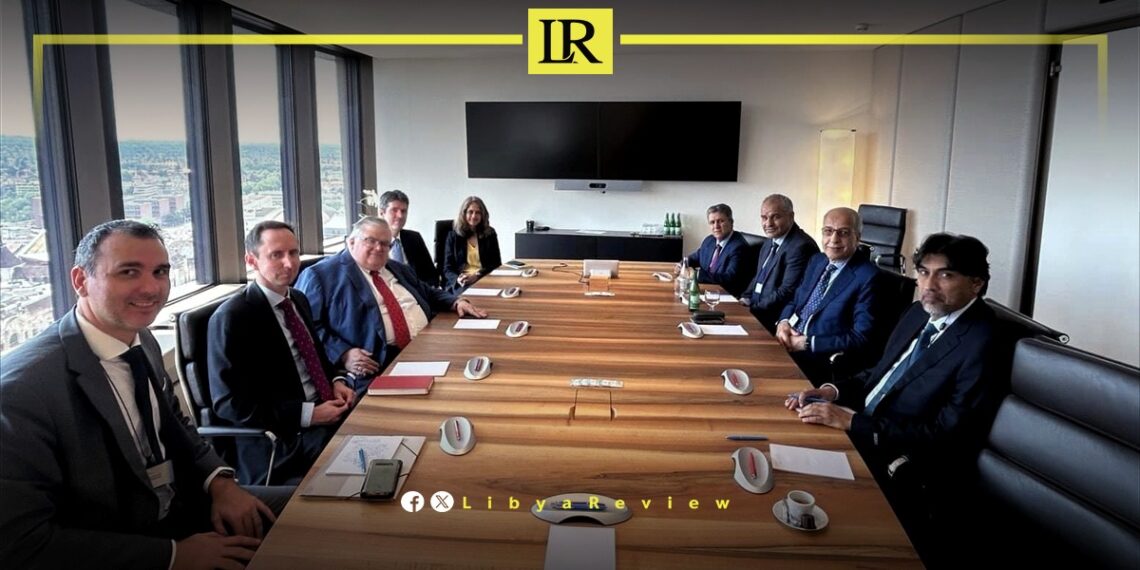The Central Bank of Libya (CBL) has announced its approval to join the International Settlements Bank (ISB), following a meeting between its Governor, Al Siddik Al Kabir, Deputy Governor, Marai Al Braasai, and accompanying delegation with Augustin Carstens, the Executive Director of the ISB, along with relevant department heads.
According to a statement released by the CBL, the meeting covered the approval process for the CBL’s membership in the ISB, as well as discussions on the consolidation efforts of the CBL, its compliance with anti-money laundering and counter-terrorism financing measures, and areas of cooperation and relationship development between the parties.
At the conclusion of the meeting, the Executive Director expressed his satisfaction and welcomed the developments and efforts undertaken by the CBL to maintain Libya’s financial sustainability. He praised the positive steps taken towards unifying the central bank and ensuring stability in the financial and banking sectors.
The statement further confirmed that Carstens announced the approval of the CBL’s membership in the ISB, granting the CBL access to services and technical support provided by the bank to central banks.
Carstens concluded by expressing his appreciation for the Governor and the accompanying delegation for accepting the invitation and attending the ISB’s annual meetings scheduled from June 28-30 in Basel, Switzerland.
Libya has been in chaos since a NATO-backed uprising toppled longtime leader Muammar Gaddafi in 2011. The county has for years been split between rival administrations.
Libya’s economy, heavily reliant on oil, has suffered due to the ongoing conflict. The instability has led to fluctuations in oil production and prices, impacting the global oil market and Libya’s economy.
The conflict has led to a significant humanitarian crisis in Libya, with thousands of people killed, and many more displaced. Migrants and refugees using Libya as a transit point to Europe have also faced dire conditions.
The planned elections for December 2021 were delayed due to disagreements over election laws and the eligibility of certain candidates. This delay has raised concerns about the feasibility of a peaceful political transition.
Despite the ceasefire, security remains a significant concern with sporadic fighting and the presence of mercenaries and foreign fighters. The unification of the military and the removal of foreign forces are crucial challenges.


